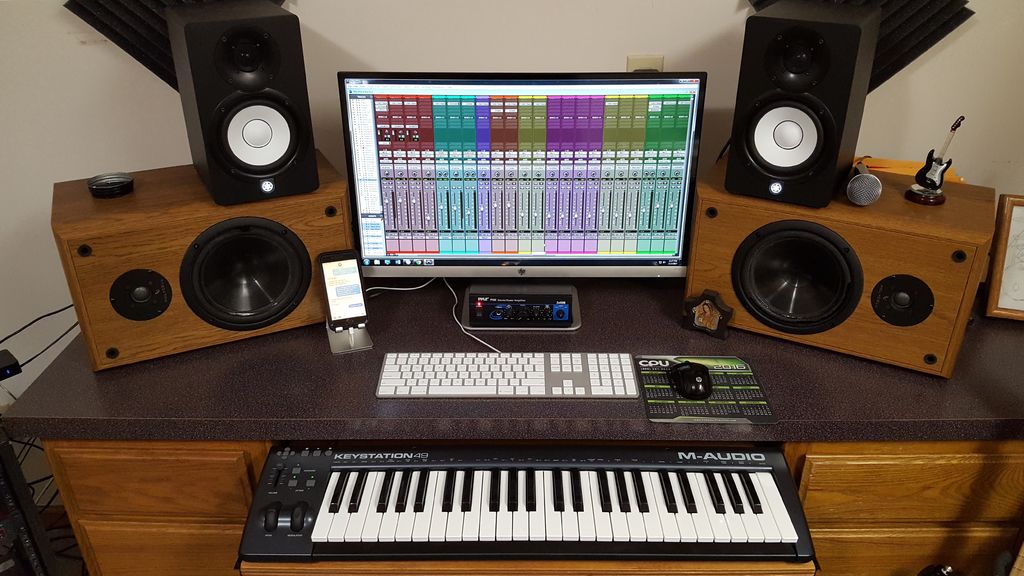Home recording studios have come a long way, and digital recording software is now powerful enough to allow all musicians to make pro-quality recordings, almost regardless of budget. However, we’ve still got to deal with some problems that the professionals learned to deal with years ago.

Amazon affiliate here: If you click any Amazon links on my pages and purchase any products I get a small commission from within the original price. Thank you!
You might have noticed while recording that some quieter songs and sounds seem to have a bit of a whirring sound in the background. That’s your computer, and if you’re working with powerful microphones, it’s important to do whatever you can to limit the noise of your PC from bleeding into your recordings.
Tips For Keeping Your Computer Quiet While Recording
Here’s a few tips to help you keep your computer quiet during an audio recording session.
1. Isolate the computer from the microphone. How do you do this? Well, the easiest way is to put your main recording microphone as far away from the computer as possible, and point it away from your noisy tower.
This isn’t always possible, but you can put up some sort of a sound-deadening material (egg cartons are a popular favorite) between the computer and the mic. At the very least, you should always be aware of where your computer is relative to your microphone.
2. If you’re building your computer yourself, be careful. It’s easy to accidentally put a cable where it could get drawn into the fan, which will create an unpleasant clicking sound (and it’ll degrade the performance of the fan, which isn’t a good thing).
Follow all of the wiring stuff as closely as you can, and I can’t stress this enough–be careful. Ground yourself before touching any component of your computer, or you could fry pretty much anything that’s green and cool-looking.
3. Find a big fan. You would think that a big fan would make more noise than a small fan, but in computers, this isn’t the case. A big fan may provide the same amount of cooling for your computer as a small fan, and generally uses less rotations per minute.
This means less noise for your recording studio. Fans are one of the least expensive major computer components, so you should be able to find a good one for cheap. Look for fans (and other computer components) that are made for gamers–for some reason, video game fans hate noise coming from their computers, and they’re waayyy ahead of the rest of us when it comes to low computer sound. Outfit your computer as if it was a gaming machine with big, quiet fans and maybe even a new case designed to keep sound at bay.
4. Don’t try to cover the computer with anything. I read one recording book that suggested putting insulation or egg cartons around a computer to prevent its noise from reaching any microphones. This is an awful idea. It’s called insulation for a reason–it keeps heat in.
Your computer’s fan is making noise because it’s expelling hot air from the computer, and you generally want to let it do its job. If you try to shut up your computer with towels, egg cartons, or anything else that will make it hotter, you’ll risk overheating your CPU or your hard drive.
That will mean costly repairs, and you might even lose a recording session or two. Upgrade your computer’s case before you try silencing it with any sort of insulation. Believe me, it’ll cost you much less.

